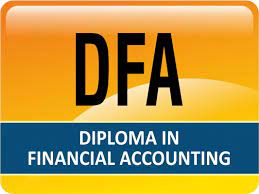MSc Distance Education: Build a Strong Science Career with the Best Distance Courses Institute in Varanasi
02-Jan-2026

A Diploma in Financial Accounting is a specialized program designed to provide individuals with a comprehensive understanding of financial accounting principles and practices. This diploma typically covers topics such as financial statement preparation, bookkeeping, taxation, auditing, budgeting, and financial analysis. best computer institute in varanasi
Here are some key components often included in a Diploma in Financial Accounting program:
Financial Accounting Principles: Students learn the fundamental principles and concepts underlying financial accounting, including the accrual basis of accounting, the matching principle, and the concept of materiality. best computer institute in varanasi
Financial Statement Preparation: This involves instruction on how to prepare financial statements such as the balance sheet, income statement, and cash flow statement in accordance with generally accepted accounting principles (GAAP) or International Financial Reporting Standards (IFRS). best computer institute in varanasi
Bookkeeping: Students are taught basic bookkeeping skills, including recording financial transactions, maintaining ledgers, reconciling accounts, and preparing trial balances. best computer institute in varanasi
Taxation: This covers an overview of taxation principles and regulations relevant to businesses and individuals, including income tax, sales tax, and corporate tax. best computer institute in varanasi
Auditing: Students learn about the auditing process, including audit planning, procedures, documentation, and reporting, as well as the role of auditors in ensuring financial transparency and compliance. best computer institute in varanasi
Budgeting and Financial Planning: Instruction on budgeting techniques, forecasting methods, variance analysis, and financial planning to help organizations manage their finances effectively. best computer institute in varanasi
Financial Analysis: Students learn how to analyze financial statements and interpret financial data to assess the financial performance and health of an organization, make informed business decisions, and evaluate investment opportunities.
Accounting Software: Familiarization with accounting software packages commonly used in the industry, such as QuickBooks, SAP, or Xero, to perform accounting tasks efficiently.
Ethics and Professional Standards: Discussion of ethical considerations in accounting practice, including the importance of integrity, objectivity, and confidentiality, as well as adherence to professional standards and codes of conduct. best computer institute in varanasi
Practical Applications and Case Studies: Hands-on experience and real-world case studies provide students with opportunities to apply theoretical knowledge to practical accounting scenarios and develop problem-solving skills. best computer institute in varanasi